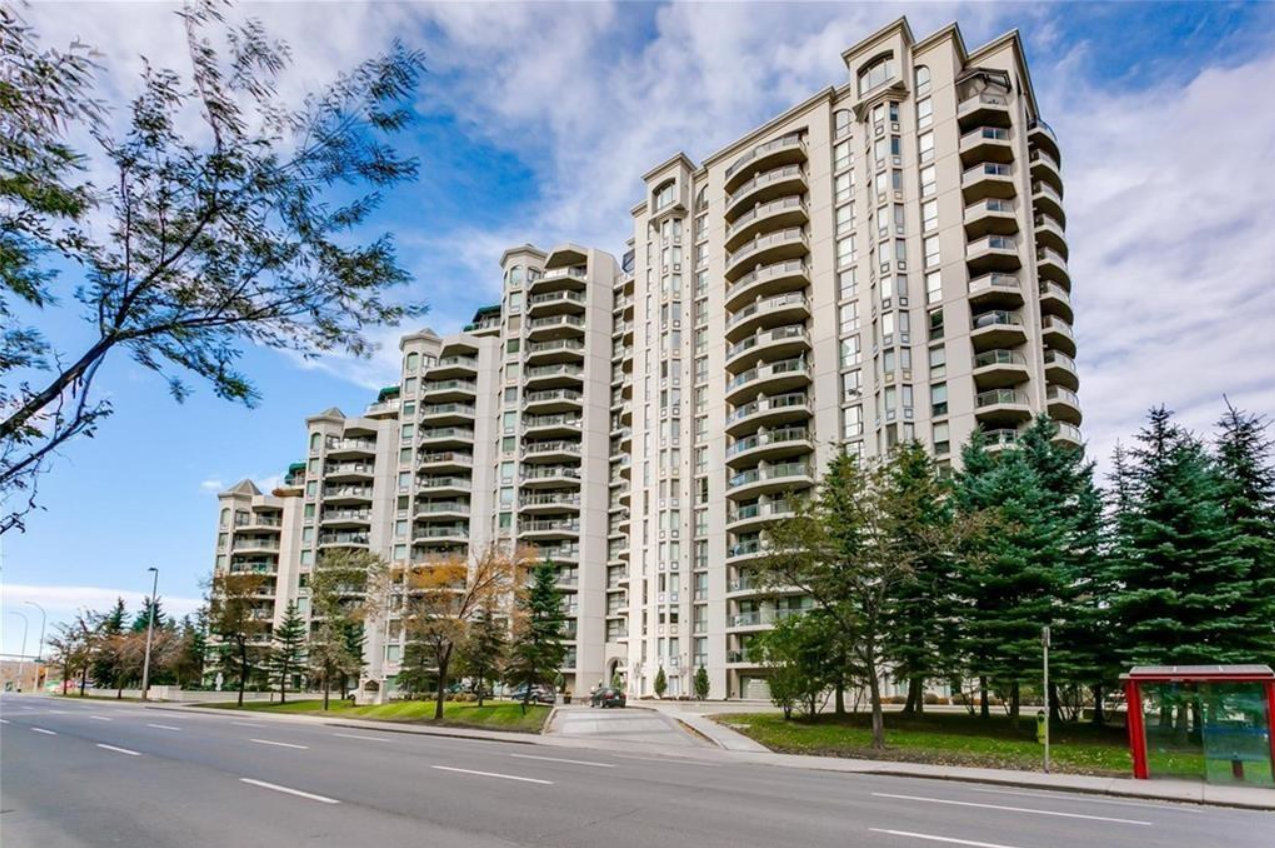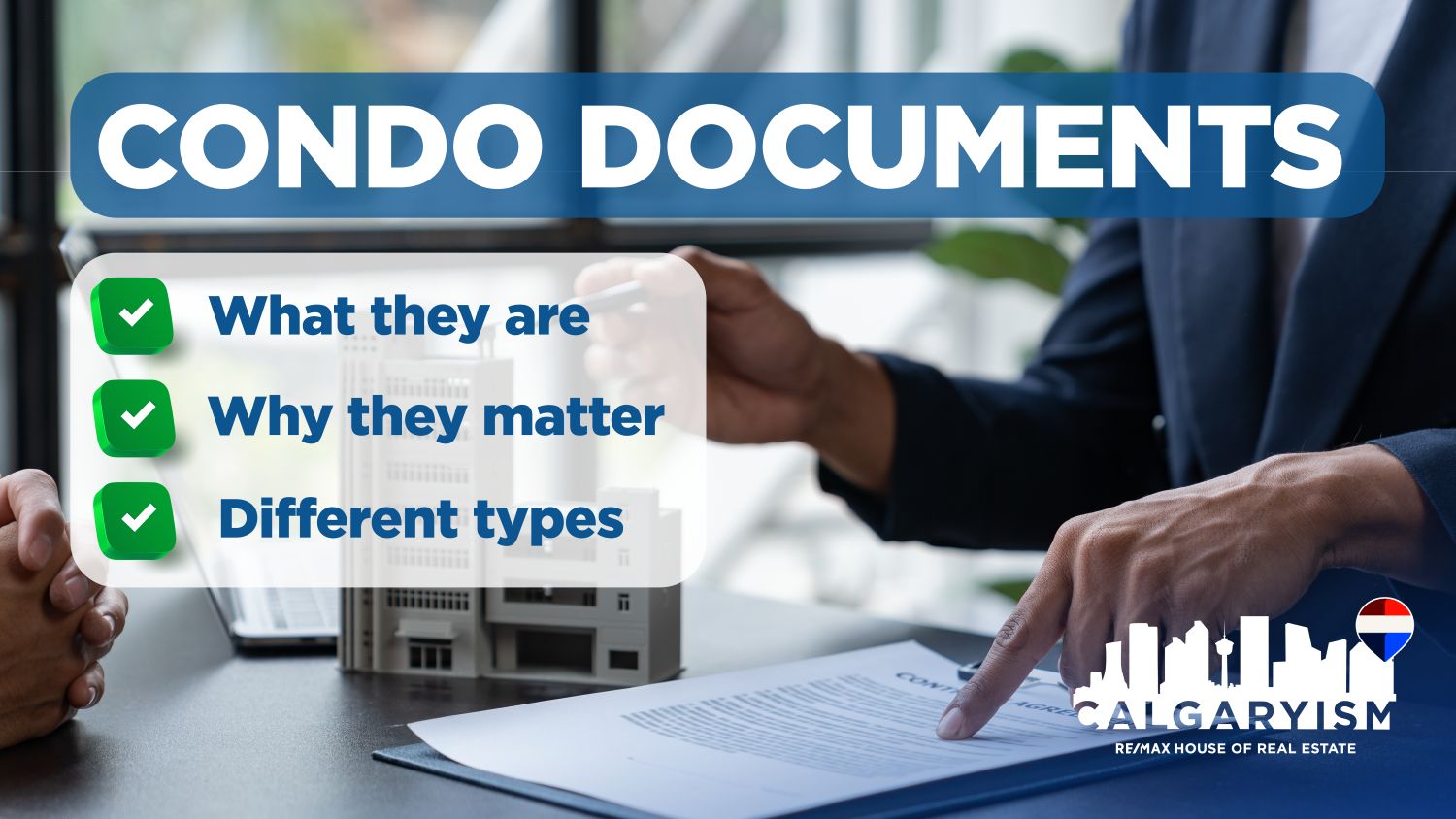Main Content
Calgary Condo Guide: Understanding Condo Corporation Financials
Your Guide to Calgary Condo Corp. Financials

When buying a Calgary condo one important aspect of doing your due diligence is getting a condominium document review that highlights the current state of the condo corporation’s financials. The details therein include the operating budget, most recent year-end financial statement plus a recent month-end balance sheet for whichever building you’re looking at buying in.
These documents are absolutely critical for you to review as a buyer, allowing you to gauge the overall financial picture and overall health of the condominium corporation. Make sure you have the most recently available statements and all other documents to review thoroughly.
For example, you would absolutely not want to buy into a Calgary condo and its corporation that has an existing budget shortfall or under-funded reserve fund as such ailments could translate into a special assessment in the future. A condominium corporation with an unhealthy balance sheet could also be a symptom of other problems you’ll want nothing to do with. Also see:
- Your Resale Calgary Condo Guide
- Condo Corporations: Your Complete Guide
- Search Calgary Condos for Sale
- 20 Tips for Buying a Condo in Calgary
Condo Corp. Balance Sheet: Terms to Know

Most Realtors in Calgary will perform a condo document review on your behalf, notifying you if there are any red flags in the details. However, some buyers like to review these documents themselves.
Upon reviewing the condo corporation’s balance sheet for a building you’re particularly interested in, there are quite a few terms that you should be familiar with to understand the documents fully. Those include both assets and liabilities.
‘Asset’ Terminology:
• Petty Cash – cash used to make small payments, usually kept on hand
• Operating Cash Account – funds available for day-to-day operations of the condominium
• Reserve Cash Account – funds available to pay for expenses that fall under the category of being a ‘reserve expense’
• Prepaid Expenses – expenses paid in advance, the benefits of which are used up in the near term – an example would be insurance
• Misc. Accounts Receivable / Sundry Receivables – items that have earned income for the condo corp but are not yet received
• Operating Dues – funds due to the condo corporation’s reserve from the operating account that have not yet been reported as transferred
‘Liabilities’ Terminology
• Accounts Payable – invoices received for operating expenses that have yet to be paid by the condo corp.
• Accrued Expense – incurred expenses for the reporting period without invoices being received for those expenses that remain unpaid
• Prepaid Condo Fees – fees paid to the corporation ahead of their due date
• Due to Reserve – funds to be transferred to the reserve from the operating account but have not yet been received
Condo Corp. Equity Capital

Determining if a condo corporation is operating with a surplus or deficit is hugely important for potential buyers. For example, if a particular corporation has assets that exceed its liabilities, then it is operating in a ‘surplus’ which is ideal.
If a condo corporation is operating in a deficit – where its liabilities exceed its assets – then that means it owes more cash than it can take in. Any condo operating under these circumstances will require its Board of Directors to take action to either increase maintenance fees or submit a special assessment to residents to strengthen the corp’s financial position before it’s too late.
Special assessments are something you want to avoid as a multi-family homeowner altogether. We’ve seen special assessments for townhome projects of over $70,000, an amount that a large majority of people simply cannot afford.
Hence, buyers should be wary of condo corporations operating in deficits. You may get stuck with an unwanted bill or have your condo fees increased considerably after moving in.
A Healthy Reserve Fund is Key
Condo corporations should have a healthy reserve fund to pay for any unforeseeable issues not addressed in the operational budget. This includes the cost of any major repairs or replacement of the corporation’s real and personal property, managed property and common property.
To determine how much money a given condo corp. should have in its reserve fund, the corporation is required to conduct a reserve fund study, report and plan every five years. Condo document reviews should have the details of the latest reserve fund study for you to review as a potential buyer.
Consult an Experienced Condo Agent
When buying a condo in Calgary, do your diligence, protect your investment and make an informed decision by consulting a highly experienced condo real estate agent first and foremost.
Having a condo specialist by your side will ensure all documents are properly reviewed and that you know everything there is to the financials of a condo corporation before signing on the dotted line.
As top-producing Realtors® in Calgary with countless condo transactions in the past, we would love the opportunity to connect with you and guide you towards a successful condo transaction! Contact us anytime and we will be happy to assist you!
Required fields are marked*
- Airdrie
- Alberta
- Arts and Culture
- Blog
- Buying Tips
- Calgary
- Calgary Activities and Events
- Calgary Communities
- Calgary Condo Guide
- Calgary Infill Homes
- Calgary Luxury Homes
- Calgary New Condo Guide
- Calgary New Homes
- Calgary Real Estate Statistics
- Calgary Restaurants
- Calgary Townhomes
- Canada
- Condo Building Review
- Condos in Calgary
- Featured Blog Posts
- Featured Blogs
- First Time Home Buyers Guide
- Listings
- Moving to Calgary
- New Condo Projects
- Oil and Gas
- Selling Tips
- Slider
- Testimonials
- The Best in Calgary
- Uncategorized
- Video Testimonials
- Contact Us
- Search MLS®
- Sellers’ Guide
- Buyers’ Guide
- About Cody & Jordan
- Blog
- Testimonials
- Downtown Calgary
- SW Calgary
- SE Calgary
- NE Calgary
- NW Calgary
- Calgary Condos
- Calgary Townhomes
- Calgary Infills
- Calgary Luxury Homes
- New Calgary Homes
- New Calgary Condos
- Acreages for Sale
- Bungalows for Sale
- Duplexes for Sale




